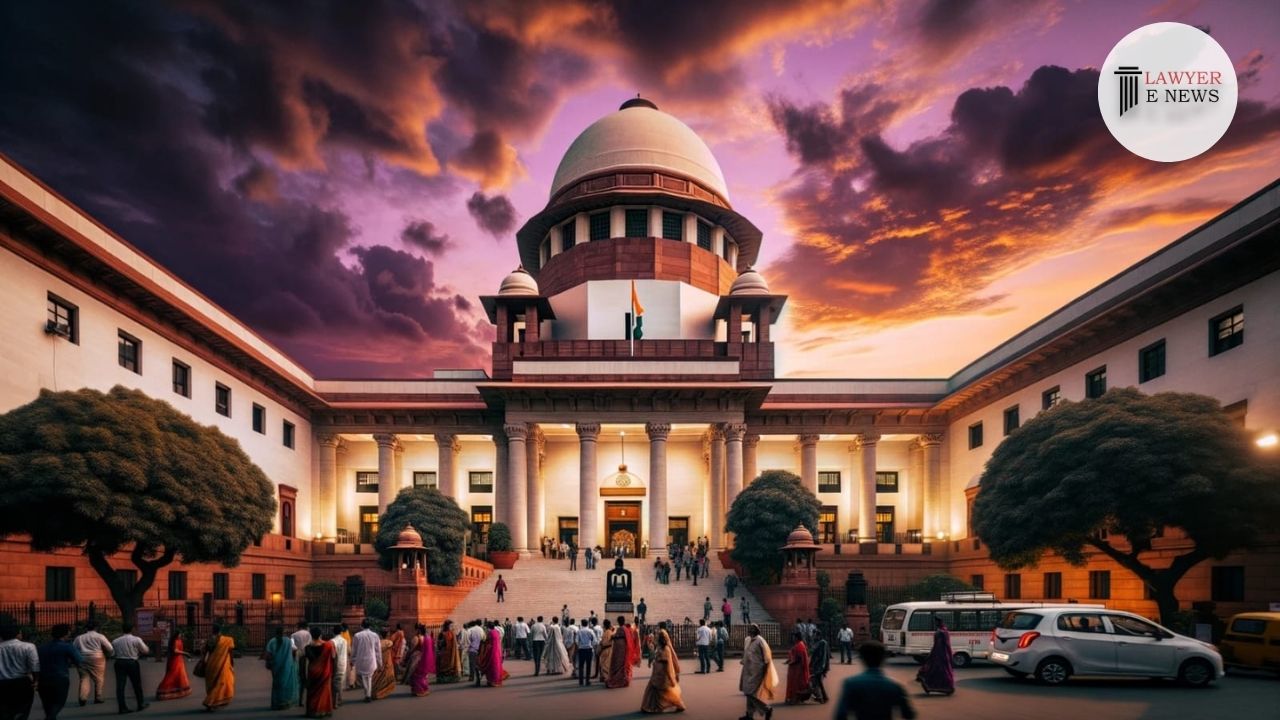-
by sayum
14 February 2026 2:22 PM



The Supreme Court has upheld the Customs, Excise, and Service Tax Appellate Tribunal’s (CESTAT) decision that the activity of labelling and relabelling at Jindal Drugs Ltd.'s Taloja unit amounts to manufacture under Note 3 of Chapter 18 of the Central Excise Tariff Act, 1985. The judgment underscores the expanded definition of manufacturing processes post-2008 amendment, which now includes labelling and relabelling as independent activities.
Background: The case originated from the Commissioner of Central Excise, Belapur, challenging Jindal Drugs Ltd.'s classification of their labelling and relabelling activities at the Taloja unit as manufacturing. The issue revolved around whether these activities qualified for cenvat credit and rebate benefits under the Central Excise Tariff Act. The 2008 amendment to Note 3 of Chapter 18 replaced "and" with "or," thus expanding the definition of manufacture to include individual activities such as labelling, relabelling, or repacking from bulk packs to retail packs.
Amendment to Note 3: The court emphasized the legislative intent behind the amendment to Note 3, which was to broaden the scope of what constitutes manufacturing. Justice Bhuyan stated, "The substitution of 'or' for 'and' was a conscious decision by Parliament to expand the definition of manufacturing processes." This change meant that labelling or relabelling alone could be deemed manufacturing activities.
Labelling as Manufacture: The bench clarified that the respondent’s activity of affixing labels at the Taloja unit falls under the definition of manufacture as per the amended Note 3. Justice Bhuyan remarked, "In relation to products of this Chapter, labelling or relabelling of containers or repacking from bulk packs to retail packs or the adoption of any other treatment to render the product marketable to the consumer, shall amount to ‘manufacture’."
Legal Reasoning: The judgment elaborated on the separation of activities into distinct qualifying processes post-amendment. Previously, the processes needed to be combined to qualify as manufacturing, but the amendment allowed each activity to stand alone. The court asserted, "By replacing 'and' with 'or,' Parliament intended to simplify and broaden the scope, making it clear that any one of these activities would suffice to meet the definition of manufacture."
Justice Bhuyan noted, "The activity of labelling or relabelling alone is sufficient to deem a product as having undergone manufacture, thus qualifying for cenvat credit and rebate benefits." This interpretation aligns with the legislative intent to streamline the definition of manufacturing within the excise framework.
Decision: The Supreme Court’s decision to uphold the CESTAT ruling and dismiss the revenue’s appeal has significant implications for the excise landscape. By affirming that labelling and relabelling are independently recognized as manufacturing activities, the judgment clarifies the scope of manufacture under the Central Excise Tariff Act, benefitting businesses engaged in similar activities. This landmark ruling is expected to guide future cases and reinforce the legal understanding of what constitutes manufacture in excise law.
Date of Decision: April 30, 2024
Commissioner of Central Excise, Belapur vs. Jindal Drugs Ltd.
